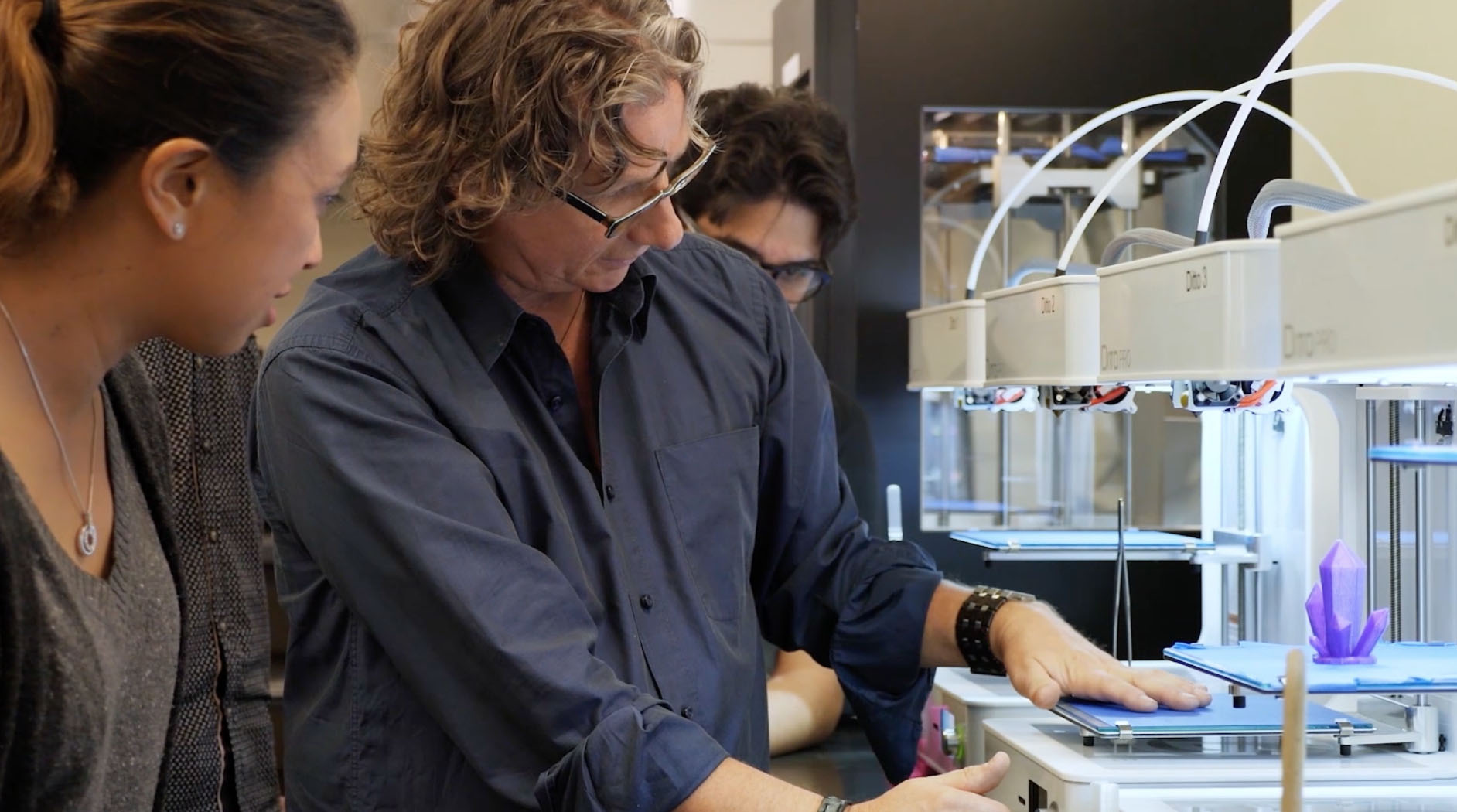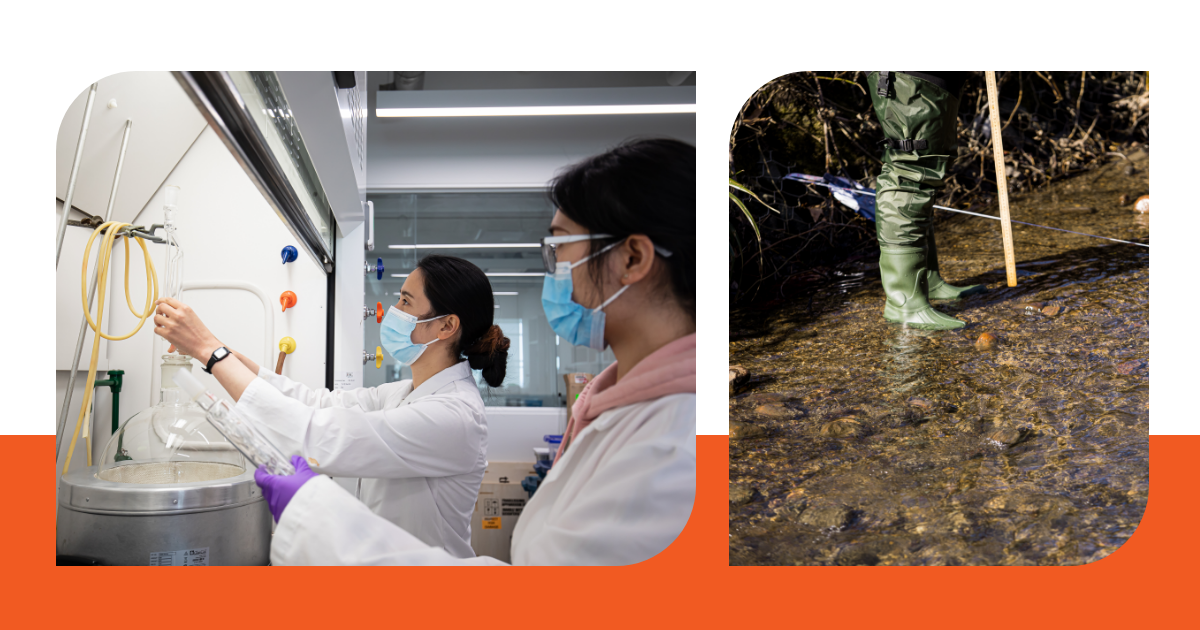Dec 5, 2024
 What makes Langara College’s Applied Research Centre (ARC) unique? It’s where innovation meets education, empowering faculty to push boundaries and engage students in solving real-world challenges. Recognized as one of ‘Canada’s Innovation Leaders (CIL)’ of 2024 on Research InfoSource’s list of Canada’s Top 50 Research Colleges, ARC continues to create meaningful impacts through cutting-edge research and strong industry partnerships.
What makes Langara College’s Applied Research Centre (ARC) unique? It’s where innovation meets education, empowering faculty to push boundaries and engage students in solving real-world challenges. Recognized as one of ‘Canada’s Innovation Leaders (CIL)’ of 2024 on Research InfoSource’s list of Canada’s Top 50 Research Colleges, ARC continues to create meaningful impacts through cutting-edge research and strong industry partnerships.
At the helm of this vibrant hub of discovery is ARC’s director, Kelly Sveinson. “We’re here to support faculty members in extending their work beyond the classroom,” says Sveinson. “By pursuing applied research, they not only contribute new knowledge but also enrich their teaching and inspire their students."
From classroom to groundbreaking innovation.
Langara’s inclusion in the top 50 research colleges is no accident. Sveinson attributes this success to a few key factors: “Our faculty are incredibly passionate and skilled, and we have built strong partnerships with industry and community organizations. This combination allows us to take on meaningful projects with tangible benefits.”
Another critical factor has been ARC's ability to secure funding and resources to support research. Langara has participated in national and provincial initiatives, such as the Natural Sciences and Engineering Research Council of Canada (NSERC)’s Community and College Social Innovation Fund, which provides grants for projects tackling local challenges. These resources enable faculty and students to tackle ambitious projects that yield benefits, without financial constraints.
Key research projects and their impacts.
ARC supports a diverse range of research initiatives that reflect Langara’s interdisciplinary strengths. “Our projects span three broad categories – natural sciences, bioinformatics and data analytics, and social innovation,” explains Sveinson.
One standout project, led by early childhood education instructor Carolyn Wing, explores virtual reality and artificial intelligence use in developing tools for anti-bias training for early childhood education students.
Another impactful project arose during COVID-19. Data analytics instructor Albert Wong worked with a major utilities company to gain greater insight into ways utilities were being consumed during the pandemic. Using natural language processing, Wong and his team developed ways to query the company’s large data sets. The project’s results have since been incorporated into the company’s line of business, enabling them to predict future usage patterns and build out what their infrastructure accordingly.
“These are prime examples of how applied research can address pressing societal needs while providing students with hands-on experience,” Sveinson adds.

Students as changemakers.
ARC’s success isn’t just about faculty and funding – it’s also about student engagement. Through paid research positions, students gain critical skills in data collection, analysis, problem-solving, setting up the stage for their future career.
When students participate in research, they not only develop technical skills but also learn how to think critically and creatively. These are essential tools for any career.
– Kelly Sveinson, Director, Applied Research Centre
The centre also hosts events like Applied Research Day, where students present their findings alongside faculty members, fostering a collaborative environment. “Our students are an integral part of what we do. Their energy and ideas are often the spark for innovation,” Sveinson shares.
Looking ahead: Innovation with purpose.
With its emphasis on collaboration, sustainability, and student engagement, the Applied Research Centre is poised to continue making waves in Canada’s research landscape. Sveinson sees the recent recognition as just the beginning. “Our goal is to keep pushing boundaries, connecting with the community, and showing how applied research can make a difference.”
From its strong industry connections to its emphasis on student and faculty collaboration, the Applied Research Centre exemplifies how academic institutions can blend teaching and research to create lasting impact. Or as Sveinson puts it, “Research is not just about discovery; it’s about making the world a better place – and that’s exactly what we aim to do.”
Ready to innovate? Students interested in becoming research assistants can check for postings on the C3 Job Board or visit ARC’s offices, found on the fifth floor of the T Building (ask for ARC manager Seetha Kumaran).
Related stories:
